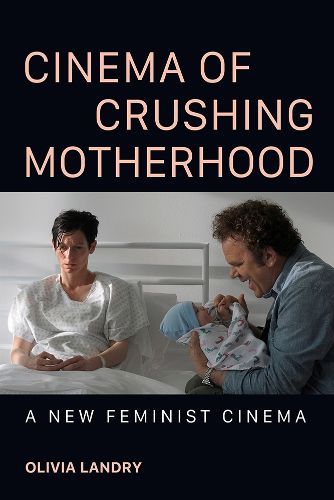Readings Newsletter
Become a Readings Member to make your shopping experience even easier.
Sign in or sign up for free!
You’re not far away from qualifying for FREE standard shipping within Australia
You’ve qualified for FREE standard shipping within Australia
The cart is loading…






Breaking down recent films about the dark side of motherhood
Twenty-first century contemporary films like Emily Atef's Das Fremde in mir and Savannah Leaf's Earth Mama portray motherhood as a source of regret, exhaustion, rage, shame, guilt, and disgust. Olivia Landry analyzes this new feminist cinema and the ways it embraces and explores the crushing burden of mothering children. Landry surveys films released in North America, Europe, and Australia over a period beginning in 2007. As she shows, revelation and the expression of negative feelings upend the traditional image of the perfect, self-sacrificial, and happy mother.
Landry tracks how radical positions like maternal regret and family abolition have replaced age-old tropes while also going beyond portrayals of maternal ambivalence. Her feminist method casts off psychoanalysis and renounces pathological approaches to motherhood to show how a generation of filmmakers have insisted on the subjective position and experience of the mother rather than that of the child. Bold and groundbreaking, Cinema of Crushing Motherhood looks at taboo-breaking films and illuminates the emotions and affects that make them so powerful.
$9.00 standard shipping within Australia
FREE standard shipping within Australia for orders over $100.00
Express & International shipping calculated at checkout
Breaking down recent films about the dark side of motherhood
Twenty-first century contemporary films like Emily Atef's Das Fremde in mir and Savannah Leaf's Earth Mama portray motherhood as a source of regret, exhaustion, rage, shame, guilt, and disgust. Olivia Landry analyzes this new feminist cinema and the ways it embraces and explores the crushing burden of mothering children. Landry surveys films released in North America, Europe, and Australia over a period beginning in 2007. As she shows, revelation and the expression of negative feelings upend the traditional image of the perfect, self-sacrificial, and happy mother.
Landry tracks how radical positions like maternal regret and family abolition have replaced age-old tropes while also going beyond portrayals of maternal ambivalence. Her feminist method casts off psychoanalysis and renounces pathological approaches to motherhood to show how a generation of filmmakers have insisted on the subjective position and experience of the mother rather than that of the child. Bold and groundbreaking, Cinema of Crushing Motherhood looks at taboo-breaking films and illuminates the emotions and affects that make them so powerful.